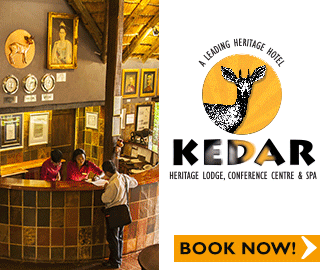
Win-win cooperation is the key word of the 2015 Discop gathering for the professionals of Film and Television in Africa. The Business to Business based event was hosted in Johannesburg, South Africa, between the 4th and the 6th of November 2015, in the prestigious venue of the Sandton Conference Centre. Showcasing representatives from across the world, Discop was the perfect stage for televisions and productions to surf the booming industry of entertainment and information in Africa.
International participants found in the continental market a fertile land for business. With a basin of viewers in constant growth and an expanding network of broadcast companies, Africa is the perfect ground for investments and for the export of audiovisual products. “Over the last two years”, said Christoph Limmer of Eutelsat, “I’ve witnessed the highest ever demand for broadcast services in Africa”.
Low costs, permissive policies and an abundance of unique scenarios for shoots have also caused an increasing presence of major film productions on the African soil. The choice ultimately contributed to the growth of expertise of the local workers in the industry and to a broader financial influx in the local market. Among many blockbusters filmed in the continent, “Marvel’s Avengers: Age of Ultron” (2014) features numerous scenes from Johannesburg and Soweto (South Africa), and “Mad Max: Fury Road” (2015) was shot in South Africa and Namibia.
If Hollywood is capturing Africa into the big screen, Bollywood and the Asian industry of entertainment are rapidly becoming the top exporters of movies and television formats in the continent. South African DStv announced the opening of three new channels that will broadcast Indian movies and television shows. China, guest country of Discop, was the second most represented at the gathering, after South Africa. Presenting movies, documentaries, TV formats and radio shows, the Chinese pavilion pullulated with business opportunities on the promise that the future of broadcast in Africa will be under the wing of the dragon.
European companies are also prepared to receive a share of the African Pandora box. France, traditionally bound to the West Coast by historical, cultural and linguistic ties, was the most active European country at Discop. The French Canal+ presented its expansion in the continent through sports. “We have 1.5 million subscribers in Africa”, stated François Deplanck, Director of Channels and Contents for the company, “and we host more than 50 channels in 20 different countries”. The palimpsest of Canal+ offers national and international football, basketball, fight sports, rugby, tennis, F1 and golf, as well as independent cinema and reality shows. “One of our most successful shows”, furthers Deplanck, “is a competition between hairdressers in Kinshasa”.
The revelation of Discop is the increase in local trends. Combined with the cooperation of countries of the likes of Nigeria, Kenya, Ivory Coast, South Africa and Cameroon, the growth of African based companies and productions is impressive. Nadira Shakur, Co-Founder of NollywoodWeek Film Festival in Paris, describes the Nigerian industry as “the second most productive in the world, after Bollywood and even before Hollywood”. Talking about budgets, Shakur specifies: “the whole value of Nollywood amounts to 5.1 billion dollars, allowing the production of movies worthy of the international competition”. To mention a few, Nigeria produced high budget live action movies as “The meeting” (2014) by M. Okwo, “October 1” (2015) by K. Afolayan, “Confusion Na Wa” (2013) by K. Gyang and “Dry” (2014) by S. Linus.
Despite the massive financial influx, local companies often struggle to face the costs of production. “The Nigerian film-makers”, admits Shakur, “are sometimes forced to maximize their budget and minimize the time investment, at the cost of precarious work conditions on the set”. Language is also a barrier when it comes to the export of African products, as the international audience is discouraged by the use of vernacular and demands movies and shows to be translated into English or French. Kenyan Caroline Mbindyo, Producer at African Voices Dubbing Company, explained the difficulties of such market and added: “in countries like South Africa, labour is very expensive. Cooperation can become very difficult when it comes to such financial disparities”. Foreign investments are still the main source of income for African broadcasters, producing an influx of 60 billion USD in 2015.
In spite of the economical challenges, the Ivorian broadcaster Côte Ouest has made of the African pride its trademark. Its program merges entertainment and education. The animated series “Les Souayés” and “Pokou princesse Ashanti” portray sensible topics to raise awareness about morality and customs. The portfolio of the company, that distributes fiction, live shows and animation made in Africa, reads: “We have the ambitious mission to reunite all these vibrant talents and flaming colours into a single catalogue”.
Riding the wave of Africa’s renaissance, Kenya prides itself of distributing 40 to 60 percent of local content on national TV channels. Lizzie Chongoti, CEO of the Kenya Film Commission, stated that “there are more Kenyan stories every year, and our database of producers is continuously expanding”. Kenya hosts the Kalasha International Film Festival, showcasing a fine selection of independent live action movies and animation.
Opportunities for film-makers and productions are also abundant in South Africa. Multichoice and DStv broadcast South African contents worldwide, while the numerous film festivals organized yearly in the country keep the discussion alive on the new directions of cinema and arts. The Durban International Film Festival is famed globally and has now reached its 36th edition. In more than 50 years of cinema made in South Africa, the country has produced or co-produced cult movies as “Sarafina!” (1992) by D. Roodt, “Tsotsi” (2005) by G. Hood, and “District 9” (2009) by N. Blomkamp.
Discop was indeed the perfect ground for a continental reunion. In the words of Jane Munene, General Manager of Cinearts Africa Limited, “this gathering is an opportunity to get to understand each other. This continent is black but not dark, and we need to be positive and proud about its potential”. Munene also evoked Agenda 2063 of the African Union, which questions the future of the black continent in the next 50 years. “What do we want for our cinema in the next 50 years?” The answer shall be found in the understanding of the needs and habits of every country, fostering a common African feel. “Our film-makers”, she concluded, “need to be able to say they are African without having to apologize”.
A Mediatic Renaissance at Discop Africa 2015
WORDS & PHOTOGRAPHS BY ALESSANDRO PARODI, 23 NOVEMBER, 2015 10:15
Discop Africa is the main yearly event for the professional workers of Film and Television in the continent. Hosted in Johannesburg, South Africa, between the 4th and the 6th of November, the gathering proved to be the stage of a pan-African cultural renaissance. Companies and private stake holders from the five continents met and mingled to pursue unique business opportunities and celebrate the awakening of cinema and popular culture in Africa.









